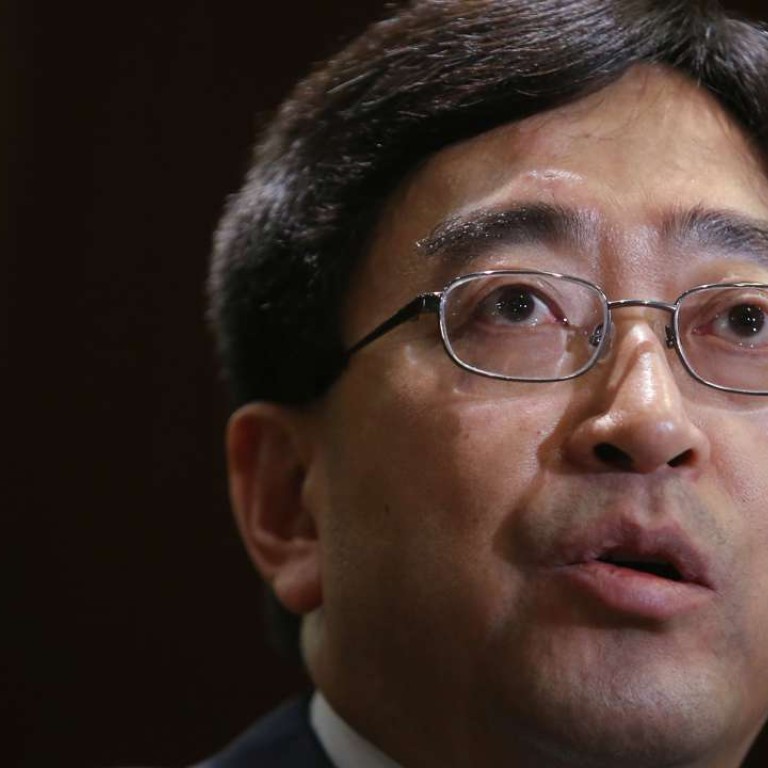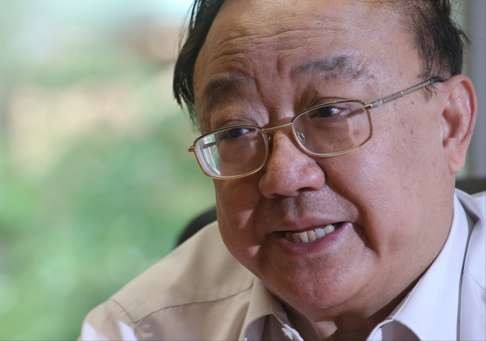
Hong Kong medical reform: bitterness engendered over failed government bill may take years to overcome
There may be no easy cure after a failed bid to reform the Medical Council left relations between the government, public and doctors badly bruised
There was no winner in the epic and bitter battle between doctors and the government over a long-delayed piece of legislation aimed at reforming the Medical Council.
The government put the bill before the legislature this year in the hope of improving the transparency and efficiency of the doctors’ watchdog, while medical professionals and their lone representative in the Legislative Council circled their wagons to fight it tooth and nail.
After a series of marathon debates that were repeatedly held up by filibustering and quorum counting, lawmakers were unable to take a final vote on the bill.
Government officials were left bitter, patients’ groups hugely disappointed and even doctors who opposed the bill admitted the medical sector had lost something of critical importance – the trust of the public.
It was all over on July 15, the last day of the current legislative session, but doctors who successfully led the fight to block the bill acknowledged there was no victory to celebrate in the end.
“It is now a situation with four losers: the government, the public, the medical sector and the Medical Council,” Medical Council chairman Professor Joseph Lau Wan-yee said.
While everyone agreed that the council, a body that licenses and regulates the city’s doctors, was in urgent need of an overhaul to restore public confidence, the doctors said the contentious debate over different revamp proposals had been destructive to the sector in many ways.
For one, it highlighted the infighting within the medical profession – or as some put it, a “war of the generations” – between older senior doctors and younger ones who became politically active in the wake of the Occupy movement two years ago and were notably more distrustful of the government.
The conflict also tore apart the already strained relationship between doctors and patients. Several patients’ rights groups were actively involved in urging the medical sector to accept the government proposal, while some went a step further to accuse the doctors of being selfish and protecting their own interests.

Medical sector leaders now agree it’s time to unite rival factions, reconcile their relationship with patients’ representatives, restore the public’s trust in doctors and reopen a discussion channel with the government on reform all over again.
The Medical Council has long been criticised for its lengthy procedures in handling patients’ complaints and its tendency to protect its own when doctors are accused of malpractice or misconduct.
In order to restore public confidence and ease its workload, the watchdog raised a reform proposal for the approval of the Food and Health Bureau in 1999.
The bureau finally took action last year and promised to unveil a reform package by the end of this year. But it had to speed things up when lawmaker Tommy Cheung Yu-yan submitted a private member’s bill in December, forcing the government to table a proposal to Legco three months later.
The proposal was to appoint four additional lay members to the council, to form a total of eight, expanding the council from 28 to 32 people. That was supposed to help cut the waiting time for a hearing, which required the presence of at least one lay member, from 58 to 30 months.
Another proposal was to change two appointed seats into elected positions – decided through a vote by the Academy of Medicine, the doctors’ specialist training school. This would ensure that the number of government appointees and elected members in the council would both be 16, keeping the ratio at 1:1.
Doctors against the bill complained of a lack of public consultation and feared an underhand move by the government to exert greater control over the council.
Dr Ng Chi-ho, president of the Public Doctors’ Association, said the government was to blame for the failure of the proposal as there was a lack of public consultation and the government refused to make concessions.

“It was only a few months from drafting the proposal to debate in the Legislative Council,” Ng said.
“The sector only disagreed with one to two clauses. Why couldn’t the government be a bit more flexible? Or just remove those clauses?”
Secretary for Food and Health Dr Ko Wing-man, who was deeply disappointed at the bill not being passed, said the government had made enough concessions and warned that a more radical reform package may be on its way.
Lau, who wants reform as soon as possible, is extremely pessimistic about the prospect of any new proposals after the previous attempt was killed.
Ko said he would not underestimate the difficulties in making the changes and stressed reform would go through a comprehensive consultation.
One option, he said, was to set up an independent system led by judges or other non-medical professionals to handle complaints against doctors. That would circumvent the problem of health professionals running their own regulatory body in what is seen as a small-circle closed shop, as in the case of the Medical Council.
Dr Ho Pak-leung, an elected member of the council, said changes would require discussion and consideration, as it would entail a more comprehensive system to handle patients’ complaints. But he believes any reform proposed by the government should address the public mood of distrust and the tendency to suspect political motives.
The failure of the previous bill partly stemmed from the doctors’ mistrust of the government, especially towards the administration of Chief Executive Leung Chun-ying, which Ho said had a “very bad” track record in the appointment system.
He cited Leung’s appointment of Professor Arthur Li Kwok-cheung, a divisive figure because of his ties with the establishment and no-nonsense style, as chairman of the University of Hong Kong’s governing council despite opposition from alumni and students.

A well-respected medical veteran, regarded as a “mediator” between doctors, patients’ groups and the government, said the trend to fight the administration was bound to become a regular and more prominent feature.
“From what I felt, the doctors, especially a lot of the younger ones, seemed to have unresolvable doubts towards the government,” public doctor Au Yiu-kai said. “Both sides were like they were standing worlds apart, which is not something I wanted to see, or patients’ groups wanted to see. These sentiments are the biggest issue, and the city’s leader will have to address it.”
It’s going to be a rocky road ahead, according to Dr Gabriel Choi Kin, president of the largest doctors’ group, the Medical Association, which held rallies outside Legco to protest against the bill.
“Hong Kong is seeing a very fast trend of mainlandisation,” he said. “Politics has already entered the sector. There is no way that the medical field can avoid being split by politics.”
Doctors’ groups argue that their suspicions about the government agenda are not unfounded, as the chief executive did suggest back in 2009 that the city could import nurses from Guangdong.
Politics has already entered the sector. There is no way that the medical field can avoid being split by politics
They fear the government has a “hidden agenda” to integrate the Hong Kong and mainland systems by relaxing the current qualification requirements and allowing substandard medical professionals to work in the city.
Although such a political move is theoretically possible if officials manage to control the Medical Council, many senior doctors point out that it is not so simple for the government alone to lower standards for overseas doctors under the current system.
In order to work in Hong Kong, foreign or mainland doctors must go through two sets of procedures. The first is to take the licensing examination, which allows them to practise as local doctors in either private or public hospitals.
The standard of the examination for overseas doctors is on a par with the test taken by students at two medical schools. That means the power to lower the standard would rest with the schools. But this is merely a tradition, not a legal requirement.
The pass rate for the three-part examination has been rather low for foreigners – only 40 to 50 per cent of graduates from Western countries, and 5 to 10 per cent for those from the mainland.
The second procedure for overseas doctors is to apply for a specific position at a public hospital on a “limited registration” basis – meaning they can work without passing the licensing exam – but only on contract subject to renewal every year. They would have to be specialists in short supply and gain approval.
Now that the fate of the reform proposal has been sealed, all stakeholders involved are actively looking at ways to restore relationships with each other, and to begin a new round of discussions on future reform.
The government has suggested forming a three-party platform involving representatives from doctors’ unions, patients’ rights groups and lawmakers, with details yet to be worked out.
Another platform formed by the Medical Association was boycotted by a patients’ rights group at its first meeting on Friday.
The future looks uncertain, but one thing is for sure: it will take a lot of determination and trust to make the whole thing work.
For now, reforming the Medical Council seems a faraway proposition. Its success depends on a combination of factors: the determination of the government, the power of persuasion of patients’ groups and the willingness of doctors to put public health first.


